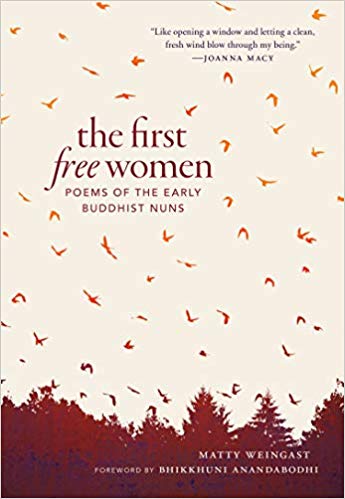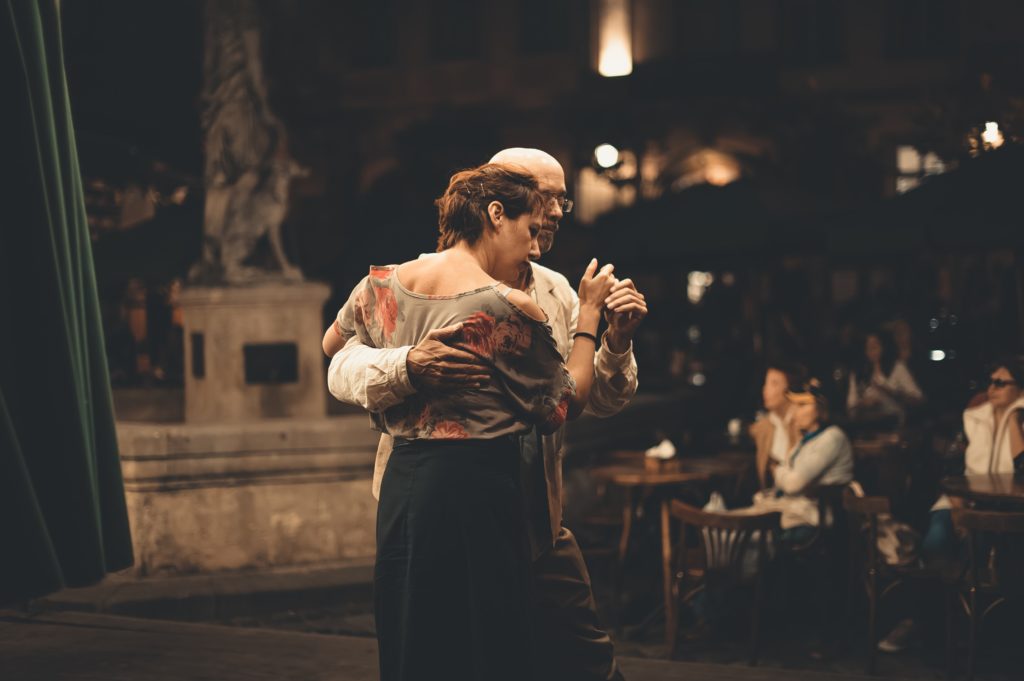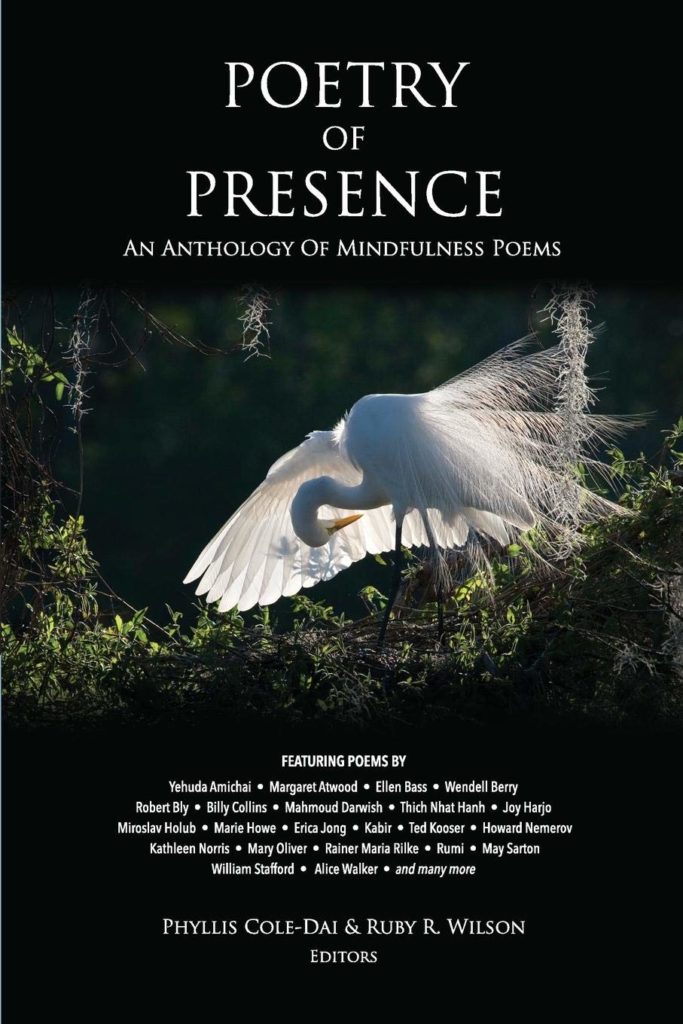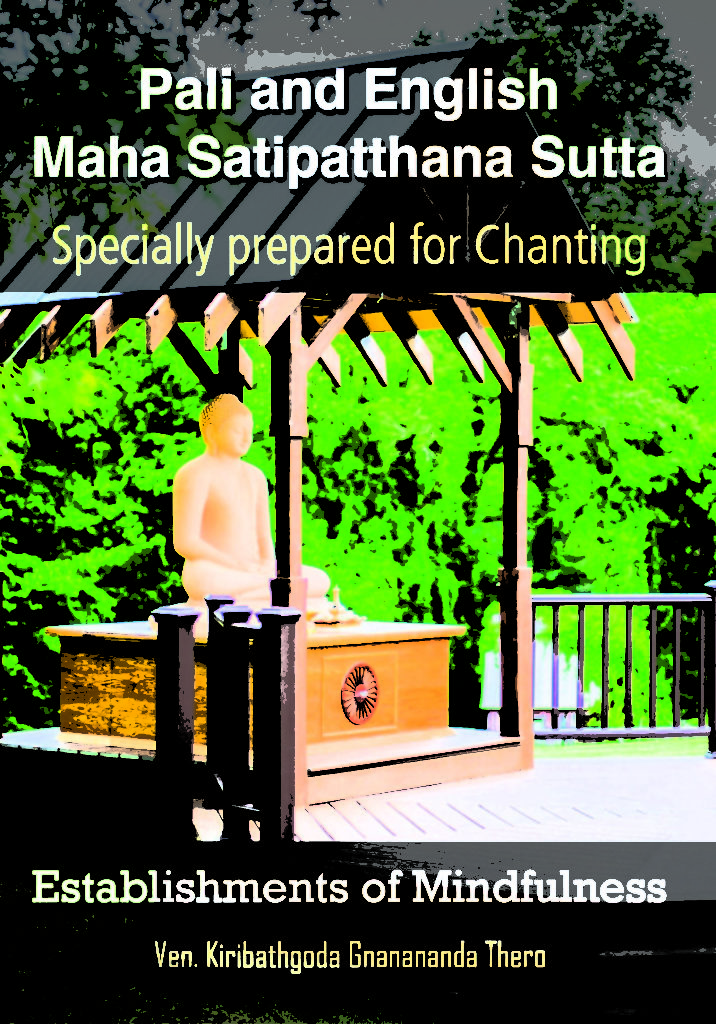One’s Life Can Be a Vehicle for Blessing

I’ve been turning my attention this month to the parami of Patience, using Ajahn Sucitto’s “Parami: Ways to Cross Life’s Floods,” for inspiration. Here’s a quote that surprised and energized me (emphasis mine):
“…It is patience, if cultivated thoroughly and insightfully, that penetrates our will to do, or intention (cetana). Intention is the mental activation that seeks, wavers and tightens… Intention directs one’s attention and interest in a particular way, so corresponding concerns and aims come to mind, and sometimes speech or bodily action follows. And this is what our ‘world’ is made of.
“…The world stops, or rather doesn’t get created, when that process of seeking, wavering and tightening stops. Transcendence, or crossing over, finally means that the movement of mind, which tries to circumvent, forget, defeat, stop, divert, allay or placate — stops. In that stopping, the very conditions that appear to confront us evaporate. And through knowing that, one is unafraid of conditions; one does not hanker after them and one is not intimidated by them.
“Patience is a big part of that. With patience, instead of trying to wriggle out of suffering, one learns to be still and to release the mind from its willfulness and possessiveness…
“And you can even feel respect for the ungrateful and the exasperating. They help you to wear out your addiction to self-view, to having your own way. And they help you to lose your fascination or irritation with the personalities of other people, and all that which is just kamma and no real self at all. Then you say ‘Thank you’ to pointless situations and people who irritate you.
“This is the perfection of patience: it can make one’s life a vehicle for blessing.”
***
Photo by Greg & Lois Nunes on Unsplash
Awareness Is Untouched by What It Is Aware Of

At this week’s Tuesday Night Insight, we’ll be working with the Third Insight — the “knowing that you know” — of the First Noble Truth (that “suffering is an unavoidable reality of ordinary human existence.”)
Here’s the text I’ll be referencing:
“Using mindfulness in working with the Third Insight means that you practice consciously shifting your awareness, both on the meditation cushion and in daily life.
“For instance, if you experience pain in your back during sitting meditation, concentrate your attention not on the physical stimulus or even your experience of the pain itself, but rather on your awareness of the pain. If you become fearful upon hearing some bad news at work, shift your focus away from the bad news toward recognition of the anxiety it provoked in you.
“In other words, instead of just being aware that the mind is experiencing suffering around an event, notice that the knowing of it is independent from the experience itself…
“So when you start to feel something unpleasant and out of habit begin to make up a story about why this feeling has arisen, stop and say to yourself, ‘Oh, I recognize this. This is dukkha (the First Insight). Back pain (or fear or anxiety, etc.) feels like this’ (the Second Insight). Then place your attention on the awareness that knows this is dukkha (the Third Insight).
“You will quickly notice that this awareness is untouched by what it is aware of, regardless of whether it is pleasant or unpleasant. It is simply there, knowing that it knows. Note, however, that this knowing is not removed from or indifferent to the experience; rather, it offers you an expanded perspective on the experience. It opens you to the awareness of the awareness itself. The Buddha was very clear on this point: Every experience is to be known from within the experience, not as a removed, outside observer.
“Eventually, a felt sense of knowing that you know arises. It is ineffable, fleeting at first, and often you lose your sense of it. Sometimes you don’t even remember that this is a possibility. But with persistence, the awareness returns and so lights up this very moment…
“You may feel it as a sigh of relief, or as a weight being lifted in the midst of having a difficult time. You may feel it as a sense of heightened awareness, particularly if it is a joyful moment, and you can really feel the preciousness of that moment as wonderful yet transient. Or you may feel it as a general sense of connectedness, or a sense of presence, that you are showing up for your own life. But one thing is for sure: When you know that you know, you know it!”
***
Text from Dancing with Life, by Phillip Moffitt
Photo by Daniel Hansen on Unsplash
If You Really Want to Be Free…

I just received my copy of The First Free Women: Poems of the Early Buddhist Nuns, a translation/adaptation by Matty Wiengast of the Therigatha (“Verses of the Elder Nuns”), which I’ve been waiting for since hearing just a few of them read aloud while I was at the Forest Refuge last June.
Bhikkhuni Anandabodhi writes:
“These poems you hold in your hands are like jewels to me…
“I had been waiting a long time for a rendition of the Therigatha that would speak directly to my heart. There are several English translations, but most have been done by scholars who have remained in a formal relationship with these poems composed by enlightened women 2,600 years ago. While these academic translations of the Therigatha may be literally accurate, and with some effort the inspiring teaching can be found, for me they miss the quality of transmission and so remain as words spoken long ago, now dusty and dry.
“Reading through this new rendition, feeling the visceral response, and experiencing the sense of clarity and connection that came through, I realized that Matty had taken the poems far beyond what I had hoped for.”
I agree.
As Jack Kornfield writes, “These are fresh, powerful, poetic translations that bring our ancient wise women to life. Let their beautiful songs of freedom inspire you own heart.”
Here’s an excerpt from Tissa — The Third
(The title of each poem is the original author’s name — in Pali and in English.)
Why stay here
in your little
dungeon?
If you really want
to be free,
make
every
thought
a thought of freedom.
You Learn What to Pay Attention to

At tomorrow’s Tuesday Night Insight we’ll continue our discussion on the practice of mindfulness in daily life and how formal meditation helps support that practice. Here’s the text I’ll be referencing:
“Suppose someone at work says something that upsets you and you become angry or defensive and react by saying something you later regret. The incident ruins your day because you can’t stop thinking about it. Of course you are aware of your feelings; they have registered in your brain. But this kind of ‘ordinary awareness’ — simply being conscious of your emotional reaction to an experience — is not what the Buddha meant by mindfulness.
“Mindfulness enables you to fully know your experience in each moment. So when your colleague upsets you, if you are being mindful, you witness that her words generate thoughts and body sensations in you that lead to a strong emotion with still more body sensations.
“You have the insight that these feelings are being created by a chain reaction of thoughts in your mind. While this chain reaction is going on, you acknowledge how miserable it makes you feel. But instead of reacting with harsh words when you feel the impulse to speak unskillfully, you choose not to. Your mindfulness allows you not to identify with the impulses of your strong emotions or act from them.
“Moreover, because you witnessed the impersonal nature of the experience, you don’t get stuck in a bad mood for the rest of the day. It is an unpleasant experience, but you are not imprisoned by it.
“When you are being mindful, you are aware of each experience in the body and mind and you stay with that experience, whether it is pleasant or unpleasant, such that you see what causes stress and harm to you and another and what does not.
“It is truly possible to experience this wise awareness in your daily life, but you need to train yourself to do so, and mindfulness meditation is the most effective means to accomplish this. Through the practice of mindfulness meditation you develop your innate capacity to:
- Collect and unify the mind (at least temporarily)
- Direct your attention
- Sustain your attention
- Fully receive experience no matter how difficult
- Investigate the nature of experience in numerous ways
- Then let go of the experience, no matter how pleasant or unpleasant it may be
“… It is not unlike training the body and mind to play the piano, dance the tango, speak a foreign language, or play a sport. You learn forms in order to train the mind, in the same way that a pianist learns scales. You learn what to pay attention to in the same way a dancer learns to feel the music and to be aware of her body and her partner’s.”
***
Text from Chapter 2, “Mindfulness and Compassion: Tools for Transforming Suffering into Joy,” from Dancing with Life, by Phillip Moffitt
Photo by Maksym Kaharlytskyi on Unsplash
To Open Up a Space

Today I find myself reflecting on this passage, which came into my mind seemingly at random, from A Month in Siena, by Hisham Matar:
“We wandered into the Accademia Musicale Chigiana and stood looking up at the beautiful decorations on the ceiling of its courtyard. Through the use of false perspective a flat surface had been made to look like the inside of a dome with carved borders. Diana, who is a photographer, said that maybe what an artist wants — not only the one who painted this fresco but perhaps every painter and photographer across time — is to make a flat surface give way, to open up a space. As she said this, I pictured a man literally enter and escape into the fresco.
“We left and walked through the street. Each drew its own shape. We talked about Islamic sacred patterns and how looking at them alone, being lost in their interlocking lines and formations, some believed, was like a prayer.
“I thought it was odd that we should speak about this, as this was not a topic we often talked about. I then told her about how, growing up, I had a sensitive and quiet teacher who was unusually frugal with his words, but who told me once that, to him, looking at nature — staring at the sea, for example — was equivalent to praise.”
***
Photo by Nathan Anderson on Unsplash
Buy This Book!

Longtime readers of this blog will notice that I haven’t been posting poems the way I used to, that now I only use excerpts of poems, or older poems that are already in the public domain, or curated poems that have been sent to me or are in some other way publicly available. That’s because I’m being more careful now about observing the precept of not taking what’s not freely offered (which I posted about here).
But I used to post whole poems, copied straight out of books (which, at least, I had purchased — but still) without thinking much about it. A lot of those poems were copied from Poetry of Presence: An Anthology of Mindfulness Poems, edited by Phyllis Cole-Dai and Ruby R. Wilson. (All poems in the book were reprinted by permission.)
I won’t be copying whole poems and posting them anymore, but if you liked any of the poems I’ve already posted — and perhaps, are using them in your dharma groups — please consider supporting these poets financially as well as literarily — by buying the book that I copied their poems from!
Or better yet, email me here with the name of the poems I’ve posted that you really love, and I’ll try to make up for using them without the poet’s permission by buying — and then encouraging my readers to buy — a whole book of their poems!
Do Not Demand That Your Suffering End

At tonight’s Tuesday Night Insight we will continue working with the First Noble Truth, in which the Buddha “proclaimed that suffering is an unavoidable reality of ordinary human existence that is to be known and responded to wisely…”
“In my experience,” Phillip Moffitt writes, “the First Noble Truth is truly noble. It contains the grand vision for how you can begin to live right now with more harmony, despite whatever difficulties arise in your life…
“You may not like undergoing this objective suffering and you may feel your share is unfair or too much. Still, your life’s difficulties are there for you to bear as best you are able. In practicing being with life just as it is, you still prefer that your suffering end and you act on that preference whenever possible.
“But most crucially you do not demand that your difficulties go away. Instead, you consciously and voluntarily carry your suffering, and in your acceptance of it you find meaning, what Ajahn Sumedho calls ‘the good of suffering.’
“Astonishingly, when you fully accept dukkha, you also discover distance from your difficulties. The way out of suffering is the way through. As Sumedho says, ‘To let go of suffering we have to admit it into consciousness.'”
***
Text from Dancing with Life, by Phillip Moffitt
Photo by Paul Hanaoka on Unsplash
This Does Not Help

“Much of your mind’s reactivity in the form of wanting or aversion happens because you are reluctant to feel fully in your body and heart what is occurring in your consciousness.”
***
Text from “Insights into Consciousness,” chapter 2 of Awakening through the Nine Bodies, by Phillip Moffitt.
Photo by Caleb Woods on Unsplash
Thus Have I Heard…

For many years now, I have listened over and over to a mysteriously beautiful recording of the Satipatthana Sutta chanted in Pali — by a Sinhalese monk, in a very lyrical Sri Lankan style of chanting — the beginning of which was played at one of the long retreats I attended.
[Click on the Pirith website here, then scroll down where it lists: Maha Satipatthana Sutta. The recording is on four mp3 files. File 1 is a short introduction (spoken). The chanting begins on file 2 and continues through file 4. Click here to go directly to file 2.]
I’ve long wanted to be able to learn that chant. Maybe not the whole thing, which is about an hour long (!), but at least part of it. Maybe the overview at the start of the sutta and the section on Mindfulness of Breathing. Which I think might take about 15 minutes. Seems doable.
So — I starting looking around for the Pali text and found: The Pali and English Maha Satipatthana Sutta: “Specially Prepared for Chanting!”
Perfect. I’m going for it!
You Also Have an Internal Experience

“The stress or unease that is dukkha — alienation, despair, uncertainty, lack of control, grief, frustration, fear, anger, longing — constitutes your mind and heart’s resistance to life being simple as it is,” writes Phillip Moffitt in Dancing with Life.
Here’s the rest of that text, which I’ll be referencing at tonight’s Tuesday Night Insight:
“Dukkha can also be understood as the discomfort of inhabiting a body with all its physical vulnerabilities and pain. And it can refer to the unease you experience because you have conscious knowledge of how scary and uncertain life is and the inevitability of death. Sometimes the words unsatisfactory and unreliable are used to describe dukkha, for the way life can let you down when things don’t go as you’d hoped and planned.
“There is suffering that originates from external events and the suffering you experience because of how you process those events in your own mind.
“It is an objective fact that your life is filled with challenges, from illness to conflict with others to the death of loved ones. An outside observer witnessing your life would be able to confirm that this is so. But in addition to — or more accurately, in reaction to — these objective painful experiences, you also have an internal experience. Your mind is filled with a seemingly endless stream of emotions that arise in reaction to what’s going on around you.
“It is this subjective type of suffering that the Buddha is primarily addressing in the First Noble Truth. As you deepen your understanding of this richer and more complex meaning of dukkha, you will find opportunities for freedom and well-being that you never even knew existed.”
***
Photo by Ryan Franco on Unsplash
